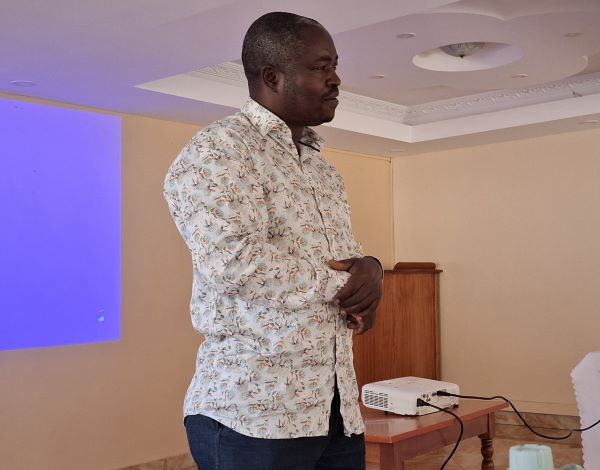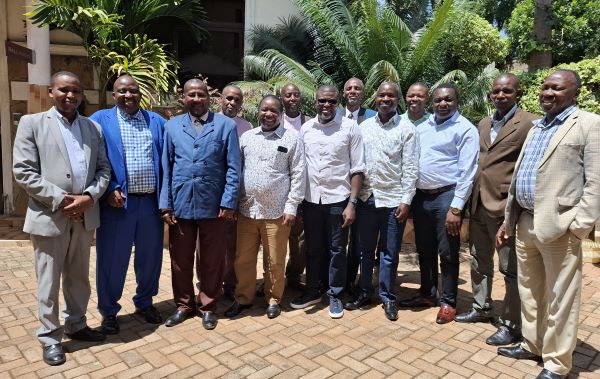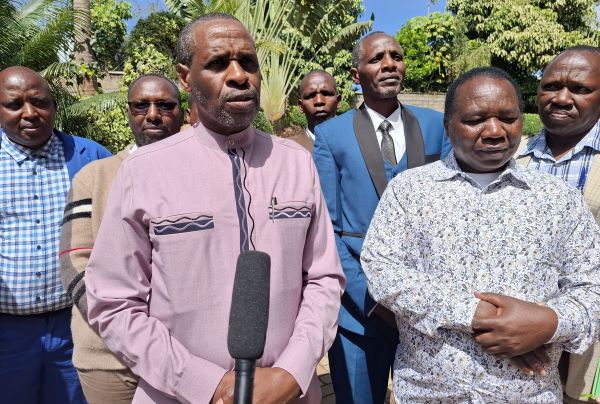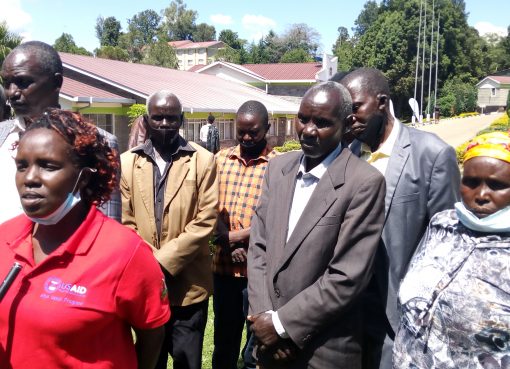Religious leaders under the umbrella Association of Pentecostal and Evangelical Clergy of Kenya (APECK) now want the government to invest more on research in Genetic Modified (GM) crops to ensure that only quality and safe products were consumed in the country.
The leaders who posed the challenge during a meeting with the Kenya University Biotechnology Consortium (KUBICO) in Kiambu following the recent dismissal of litigations that froze the lifting of the ban on GMOs asked the government to be more proactive in the biotech research undertakings to guarantee the food security of consumers.
APECK National Chairman Rev. Fredrick Ngugi said it was time the government sensitized Kenyans to demystify the myths shrouding the GMO concept to fully embrace new scientific method of farming ahead of the roll out skated for early next year to ensure that everybody was on the same page.
He at the same implored on state actors take their regulatory role to safeguard the interest of the consumers now that the ban was lifted exposing the market to abuse by foreign players insisting that locally produced bio tech crops and indigenous varieties must get preferential treatment by reducing imports on products readily available in local market.
“We have heard a lot about GM, food insecurity and it is time that we brought our synergy together and replace the traditional with modern farming methods which enabled other countries that embraced the technology attain food security” he said.
Rev, Ngugi urged the government to facilitate biotech scientists at our universities to explore more research studies on better farming techniques and at the same time disseminate information about their findings to allay the fears of skeptic Kenyans.

PIC 4 : Dr. Joel Ochieng, Secretary General for the Kenyatta University Biotechnology Consortium (KUBICO)
“ We did not have information and we have learnt GMO food is not about poison but improved food and modified in a way to resist diseases and pest for better production and yields contrary to the perceptions that was propagated” he said
Bishop John Chere , Chair of APECK at the Githunguri Sub County said it was time the nation forged ahead to alleviate the suffering of Kenyans by embracing the technology to guarantee food security now that the truth about GMO was finally out.
“Now that we have the correct information on GMO our country needs to adopt these modern farming techniques to entrench food sufficiency and disregard the scare mongers assertions who took advantage of our ignorance to spread falsehoods about GMOs” he said.
Bishop Chere said after being taken through the process, the church was convinced to preach and spread the gospel to their congregants about GMO by assuring them that it was safe,
“We have been taken through these steps and we urge our leaders, who are so vocal in condemning it that unless we join hands together we will still continue suffering from food insufficiency, but if we hold together we will actually not remember that there is food insufficiency in the Country “, he said .
Dr. Joel Ochieng, who leads the graduate private learning programme at the University of Nairobi and is also the Secretary General for the Kenyatta University Biotechnology Consortium (KUBICO) said the meeting was critical to make known the potential of the country to improve food production through these technologies.
“We want to do away with the perennial circle of cases of starvation and reduce dependency on imports to bridge the food deficit experienced during dry spells into the country now that we have room to fully exploit our agricultural potentials through biotech research to produce more” he added.
Dr. Ochieng said that one of the reasons why technologies were not adopted was because the masses were not properly informed but now that the clergy were in the know the message was going to sink in to the population.
“The church is best placed to spread the good word and information since they would no longer listen to some quarters that were responsible for spreading propaganda about the safety of GMO“ , he said

Dr. Ochieng said there are people who are out to benefit when Kenyans remain poor when there is food insecurity adding “we are happy that the church has joined the campaign to pass the correct information”.
“Now that the clergy have the information, they can now go on and carry out sensitization to their membership before the rollout of the commercialization of /BT maize, we are hoping that the government will come in and support sensitization exercises both directly and through the church and other institutions”, Dr. Ochieng said
Richard Oduor, Professor in Molecular and Cell Biology and the Registrar of Research at Kenyatta University said that for a long time the discussions around this new technology and GMO in particular had been confined to a small segment of professionals among them politicians, lawyers, judges and students but with entrant of the clergy all the masses will have their voice in the controversy riddled topic.
“The Clergy have the ability to reach the common people and have the ability to convince them because they hold a unique place in the society. They speak to socio-economic things, they speak to socialization, they speak to belief and faith”, he added.
Through collaboration, Prof. Oduor said , the scientists can speak to clergy and in turn the clergy speaks to other cadres of the society and give information that is truthful.
He noted that as scientists , they had listened to what clergy said on strengthening and together with government support, a lot more on discussions surrounding GMO and other technologies too such as Artificial Intelligence (AI) that are coming in should be done
The high court dismissed several petitions challenging the lifting of the ban on GMO crops early this month. This has paved way for cultivation and importation of GMO crops in the country.
The clergy is calling for more sensitization on the cultivation and importation of the GMO crops that are said can reduce the country’s food import bill and make the country more food secure.
Kenya is among Burkina Faso, Egypt, eSwatini, Malawi, Ethiopia, Ghana, Nigeria, South Africa, Sudan, and Zambia who at the moment have approved the cultivation of M crops
By Wangari Ndirangu




